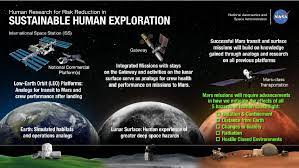The International Space Research Program: Exploring the Final Frontier
Space exploration has always captivated the imagination of humankind, and the International Space Research Program is at the forefront of pushing the boundaries of our understanding of the universe. This collaborative effort brings together scientists, engineers, and researchers from around the world to conduct groundbreaking research in space.
One of the key goals of the International Space Research Program is to study celestial bodies such as planets, moons, asteroids, and comets. By conducting experiments and collecting data in space, scientists can gain valuable insights into the formation and evolution of these cosmic objects.
Furthermore, the program aims to investigate phenomena such as black holes, dark matter, and gravitational waves. These studies not only contribute to our knowledge of fundamental physics but also have practical applications in fields such as astrophysics and quantum mechanics.
Another important aspect of the International Space Research Program is its focus on human spaceflight. Astronauts from different countries work together on missions to conduct experiments in microgravity environments, test new technologies, and study the effects of long-duration space travel on the human body.
Moreover, the program plays a crucial role in Earth observation and climate research. Satellites launched as part of this initiative provide valuable data on weather patterns, natural disasters, deforestation, and climate change. This information is essential for monitoring environmental changes and developing strategies for sustainable development.
In addition to scientific research, the International Space Research Program fosters international cooperation and collaboration. By working together on ambitious projects in space exploration, countries can share resources, knowledge, and expertise for the benefit of all humankind.
In conclusion, the International Space Research Program represents a remarkable effort to explore the final frontier and unlock the mysteries of the cosmos. Through its pioneering research initiatives and collaborative spirit, this program continues to inspire future generations to reach for the stars.
Six Key Strategies for Enhancing International Space Research Programmes
- Collaborate with other countries to share resources and expertise.
- Invest in cutting-edge technology for space exploration.
- Prioritize safety protocols for astronauts and equipment.
- Conduct thorough research on the effects of long-term space travel on the human body.
- Promote international cooperation in space missions to achieve common goals.
- Ensure transparency and accountability in funding allocation and project management.
Collaborate with other countries to share resources and expertise.
Collaboration with other countries is essential in the realm of international space research programs as it allows for the sharing of resources and expertise. By working together, countries can pool their knowledge, technological capabilities, and funding to undertake ambitious projects that would be challenging to accomplish individually. This collaborative approach not only accelerates the pace of scientific discovery but also fosters a sense of global cooperation and unity in the pursuit of exploring the mysteries of the universe.
Invest in cutting-edge technology for space exploration.
Investing in cutting-edge technology is essential for the success of the International Space Research Program. By developing innovative tools, instruments, and spacecraft, scientists and engineers can push the boundaries of space exploration and conduct groundbreaking research. Advanced technology enables us to study distant planets, observe cosmic phenomena, and conduct experiments in microgravity environments with greater precision and efficiency. By prioritizing technological advancements, the International Space Research Program can continue to expand our knowledge of the universe and pave the way for future discoveries in space science.
Prioritize safety protocols for astronauts and equipment.
In the realm of international space research programs, prioritizing safety protocols for astronauts and equipment is paramount. Ensuring the well-being of astronauts during space missions and safeguarding the integrity of spacecraft and scientific instruments are essential for the success of any mission. By meticulously following stringent safety procedures and continuously monitoring potential risks, space agencies can mitigate hazards and enhance the overall safety of all personnel involved in space exploration endeavours.
Conduct thorough research on the effects of long-term space travel on the human body.
As part of the International Space Research Program, a crucial focus is placed on conducting comprehensive research into the effects of long-term space travel on the human body. This important area of study aims to understand how extended periods in space impact astronauts’ physical and mental well-being. By investigating factors such as bone density loss, muscle atrophy, cardiovascular health, and psychological resilience in microgravity environments, scientists can develop strategies to mitigate these challenges and ensure the safety and health of future space explorers.
Promote international cooperation in space missions to achieve common goals.
Promoting international cooperation in space missions is paramount to achieving common goals in the field of space research. By collaborating with scientists, engineers, and researchers from around the world, we can combine our expertise, resources, and knowledge to tackle complex challenges and push the boundaries of exploration. Working together on space missions not only fosters a spirit of unity and collaboration but also ensures that we can achieve greater success in our endeavours to unravel the mysteries of the universe.
Ensure transparency and accountability in funding allocation and project management.
It is crucial to ensure transparency and accountability in funding allocation and project management within the International Space Research Program. By maintaining clear and open processes for how funds are allocated and projects are managed, stakeholders can have confidence in the integrity of the program. Transparency helps to build trust among participating countries, institutions, and the public, while accountability ensures that resources are used efficiently and effectively towards advancing our understanding of space exploration. This commitment to transparency and accountability fosters a culture of responsible stewardship of resources and promotes collaboration towards achieving common goals in international space research.

No Responses